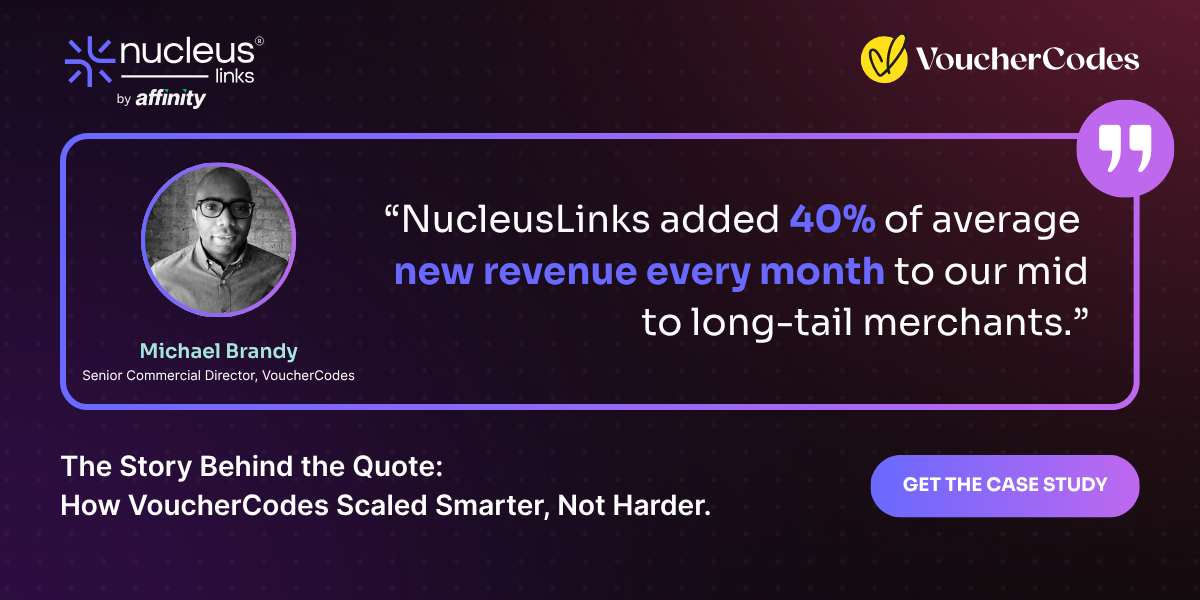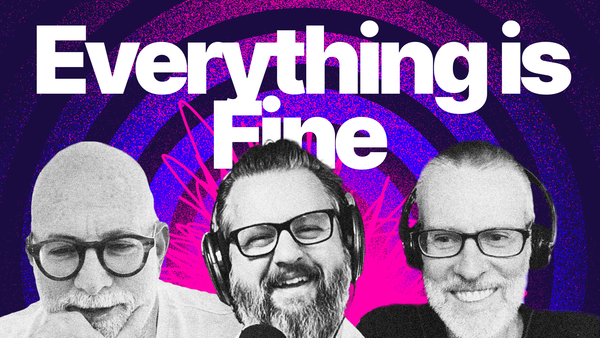Taxing PR
Plus: A conversation with Variety's co-editors-in-chief
I can almost feel the August lull approaching. We have several things happening before many detach for a few weeks of rest ahead of the the post-Labor Day rush to end the year. Allow me some tasteful promotion ahead of a conversation with Variety’s co-editors-in-chief about managing the prosumer lane that straddles B2B and B2C and why publishers need to tax PR.
As always, send me your feedback by hitting reply or emailing bmorrissey@therebooting.com
Total revenue optimization survey
Reminder: Please take this brief survey we are conducting on the state of publisher monetization. This will form the basis of a new research report that will detail how the depth over breadth era is causing publishers to shift to a “total monetization” approach that prioritizes maximizing revenue per user. We will gift an annual TRB Pro membership to five respondents.
Virtual events: Unifying data and the state of indie media
We have a couple virtual gatherings coming up I’m excited about. This is a test run for the fall, when we’ll be starting weekly interactive programs that go deep on specific topics in building sustainable media business.
- Tomorrow at 1pmET, Forbes chief innovation officer Nina Gould is joining me to discuss how Forbes undertook the critical step of centralizing its audience data – and activating it. We will get into the details of the strategy, the complexity publishers face in marrying disparate audience data sources and why unified data is the starting point, not the end goal. In partnership with BlueConic.
- On Aug 5 at 1pmET, A Media Operator’s Jacob Donnelly is joining me for an experiment. We are going to have an interactive discussion we’ll both lead about the state of independent media, the models we find most compelling, and how we approach our own businesses. Participants will also get a discount to our respective membership programs.

Affiliate ops is broken. Here’s a fix

Affiliate is supposed to be a margin business. But most publishers treat it like a side hustle. Links break, networks underpay, ops teams burn time managing spreadsheets. VoucherCodes, owned by Ziff Davis, figured there had to be a better way.
They brought in NucleusLinks, an AI-powered platform built to handle the operational sprawl that exceeds what most ops teams can realistically manage. It finds broken links, reroutes to higher-paying partners, and quietly keeps the plumbing running- without adding headcount or changing workflows.
The result: a 40% lift in affiliate revenue, just by fixing what was already live.
How Variety straddles B2B and B2C
There are few safe harbors in the media business anymore. I find many publishers are seeking refuge in the few remaining semi-protected areas, like narrow trade publication niches and ad categories like corporate responsibility and for-your-consideration ads.
One of the most attractive approaches of recent years has been marrying the depth of B2B with the breadth of consumer. This is the formula Politico used that became the model for many others that operated in business and influence niches like politics, Hollywood and sports. Variety, under the ownership of Penske Media, has long straddled B2B and B2C, operating an high-octane traffic operation along with more in-the-weeds approach typical of trade publications.
Variety co-editors-in-chief Cynthia Littleton and Ramin Setoodeh joined me to discuss how they strike this balance. We addressed how you treat publications as bigger brands, why print still matters in these models, the changing nature of celebrity in a creator era, how Variety builds franchises like Actors on Actors and the challenges facing the entertainment industry.
Final thought: Taxing PR
PR has always fed off media, in ways both symbiotic and parasitic. I’ve long thought of PR as akin to ad tech: It inserts itself between value creation and value capture, usually extracting more than it contributes. The core PR pitch has been simple: why buy ads when you can earn coverage?
But here’s the catch: the “earned” part creates value for the brand and the PR firm, not the publisher. The labor, infrastructure, and editorial legitimacy are borrowed. This is an exercise in value extraction, not creation.
As institutional media has weakened, PR has shifted its strategy. First, it latched onto creators.. Then it embraced the direct-to-audience mantra: brands don’t need gatekeepers; they can be their own media companies.
Not so fast.
The rise of AI-powered answer engines has introduced a new layer: generative AI optimization. And like SEO that was a refuge for a vast array of snake-oil salesmen, GAO creates a lucrative gray zone of optimization services. Nobody knows exactly how AI systems select sources, which makes it a perfect environment for consultants and opportunists.
But early research suggests something inconvenient for PR: AI chatbots leans heavily on institutional media.
A recent Muck Rack study of more than a million citations found that 95% of AI-cited sources are unpaid, and 27% are from journalistic outlets. It's even higher when queries involve recency.
The value is not in churning out SEO-optimized blog posts and press releases.
This underscores the central conundrum of the modern media economy: value is created by journalism but captured elsewhere. As AI further centralizes discovery, that dynamic is poised to intensify.
The imbalance is already extreme. One estimate puts the PR-to-journalist ratio at 6:1. PR people will claim they "help" journalists, and honestly, I've never seen that to be the case any more than insurance companies help doctors and patients. PR firms insert themselves between the people creating the value (journalists) and those seeking it (brands), set the terms of engagement, and then skim the margin. Better business to influence coverage, take all the credit for the value created, then it is to actually create the coverage and value. That's a market failure.
There’s a need for a kind of PR tariff to address this imbalance. Treat access to the media ecosystem like the scarce resource it is. Centralize pitches. Rate-limit the worst offenders (starting with the podcast spam firms). I think of this as a pay-per-pitch system.
What’s more, as much as people like to cite HubSpot buying The Hustle, I think that approach will mostly remain the exception because running a media operation is not a side hustle most companies want. The opportunity lies in more direct partnerships between content creators, whether institutional publishers or not, and companies that align the extraction of value with the creation of it, without sacrificing credibility.
The old structures of the media economy are deconstructing and must be replaced. Media itself is more valuable than ever, if more diffuse, and the economic model needs an overhaul.
Thanks for reading. Send me an note with your feedback by hitting reply.
For partnership information, see how we work with clients and get in touch.


